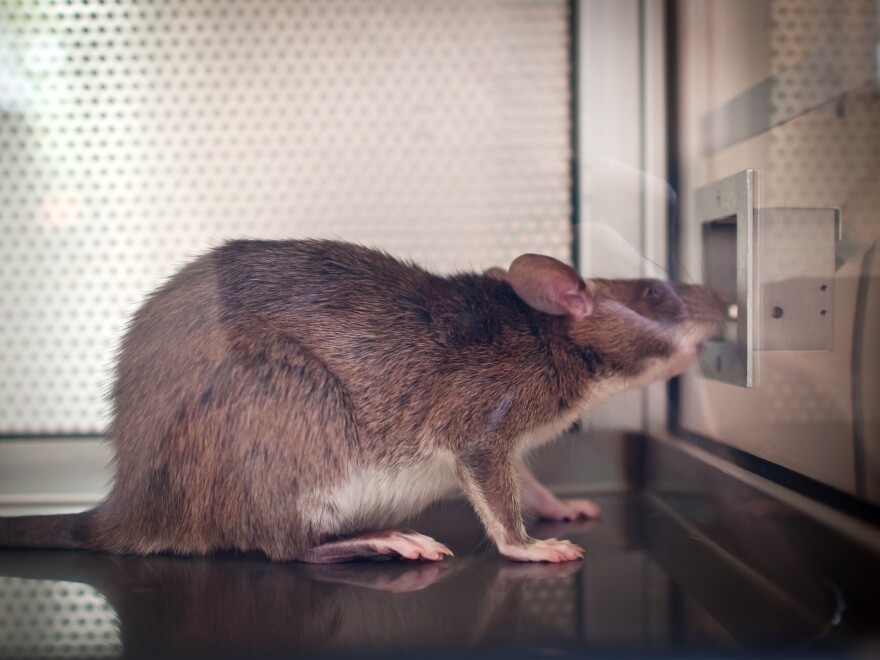Rats are notorious for spreading nasty diseases. Think the plague, lassa fever and even salmonella.
But could some jumbo-size African rodents help health workers diagnose diseases more quickly? They just might.
A group in Tanzania is training rats to detect tuberculosis in people. The critters in question are African giant pouched rats. They are about twice the size of your average house gerbil — and half as pretty.
The critters have very poor vision, which they make up for with a keen sense of smell. For the past decade, workers at the nonprofit APOPO have been taking advantage of the rat's olfactory prowess to detect buried land mines around the world.

Now APOPO is tackling TB, which kills more than 1.4 million people a year.
Diagnosing TB can be tough in rural communities of Africa because standard methods typically require a skilled medical professional. A quick and easy-to-use tool called Xpert is now available for detecting TB. But it's expensive at about $17,000 for the machine and nearly $10 for each test.
So chemist Negussie Beyene and his team in Tanzania have been teaching African giant pouched rats to identify the disease by sniffing a patient's sputum.
The team trains the critters with a Pavlovian click-and-reward approach. When the rats are just a few weeks old, technicians teach the animals to associate a click sound with a small bite of mashed bananas and a special pellet of food. The next step is to link the scent of TB with the reward.
A trained rat can correctly pick out a TB sample about two-thirds of the time, Beyene says. The rate increases to about 80 percent when two or three animals are put on the task.
The rats aren't as good as a trained pathologist in the U.S. with a microscope, but they get better results than many clinicians working in rural Africa can achieve, Beyene says. "In an African setting, the sensitivity of the microscopy ranges between 30 to 40 percent," he explains.
So far APOPO only has around 32 rats in their TB program.
But the rodent troop is already helping out with diagnosis at a small laboratory in Morogoro, Tanzania. The rats serve as a second-line screening system there to verify results from current microscopy tests, Beyene says.

The laboratory collected over 31,000 sputum samples from 17 clinics and hospitals across the country in 2012. With the help of rats, they've accurately diagnosed about twice as many positive results as the clinics alone, says APOPO's chief Christophe Cox.
The lab collects about a thousand samples each week. "About 20 percent are positives, but only 10 percent are marked as positive by microscopy, meaning nearly half are missed," Cox says.
And the rats are faster than people, too. The rodents can evaluate more samples in 10 minutes than a lab technician can do in a day, Cox says. One noteworthy and nimble rodent, named Harod the Rat, is able to clear 10 samples in 20 seconds.
Each rat costs about $7,800 to train and house for his eight-year lifetime. So the little rodents may be a good fit for hospitals and clinics in the developing world, where resources and two-legged medical workers are harder to come by.
But these critters do have their limits. Unlike Xpert, the rat can't tell if a sample contains a drug-resistant strain of TB.
They are just rats, after all.
Copyright 2021 NPR. To see more, visit https://www.npr.org.



